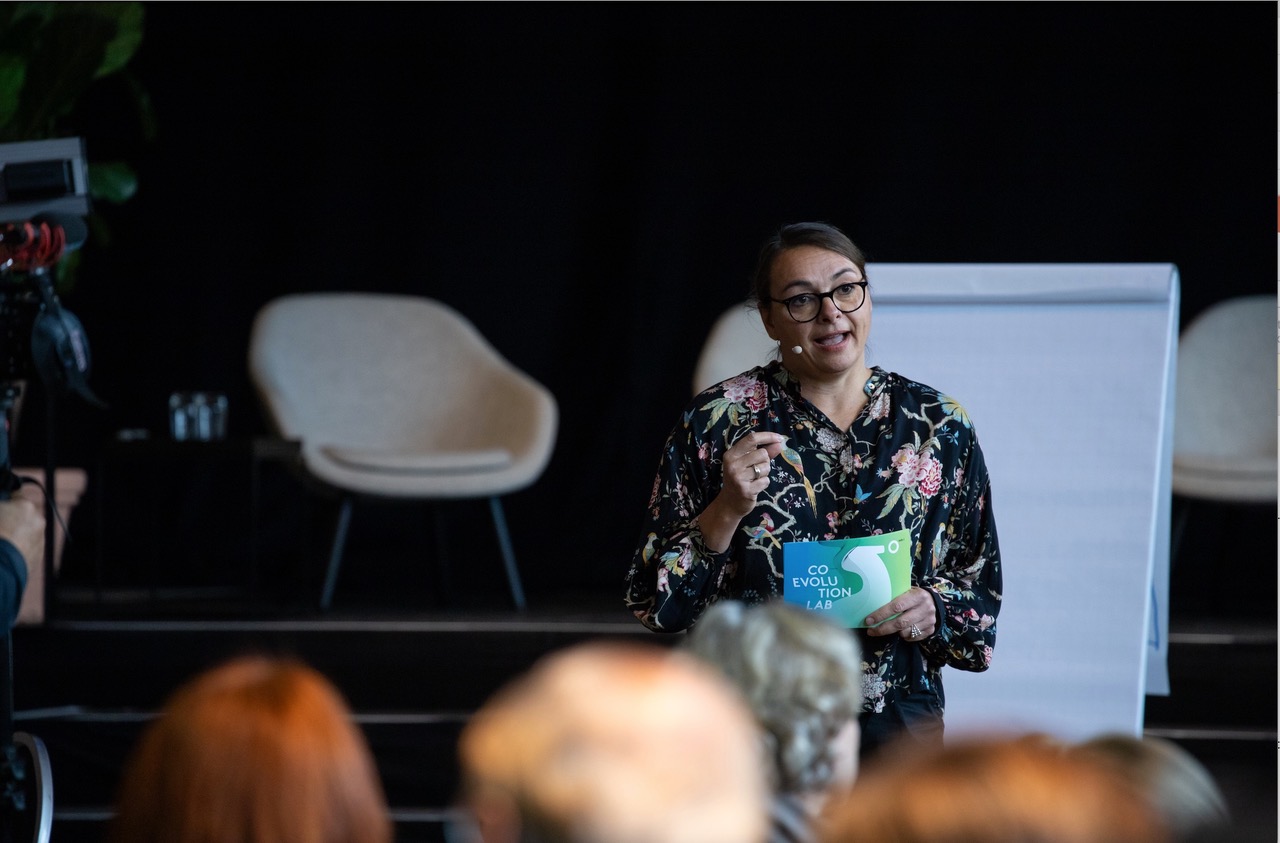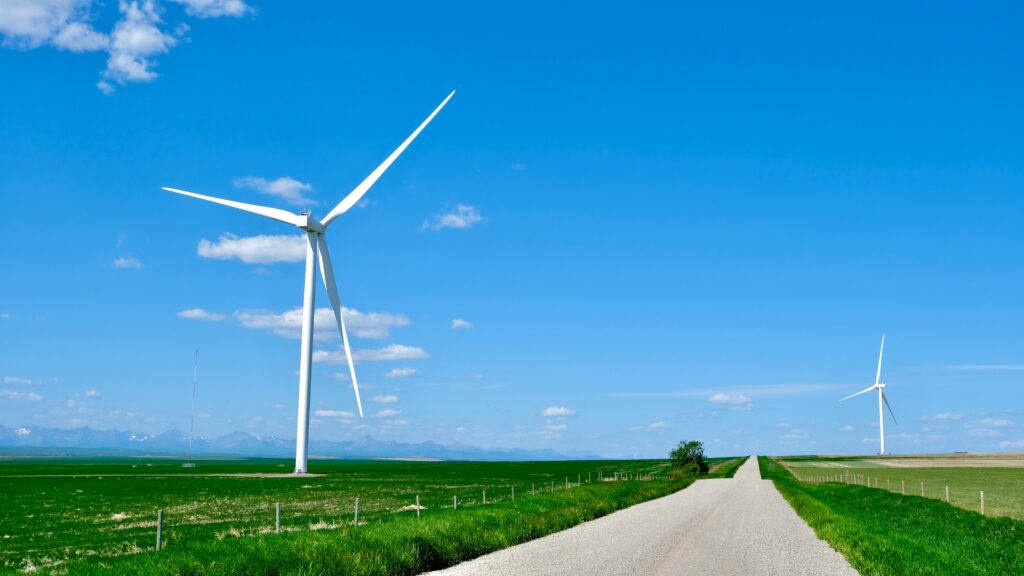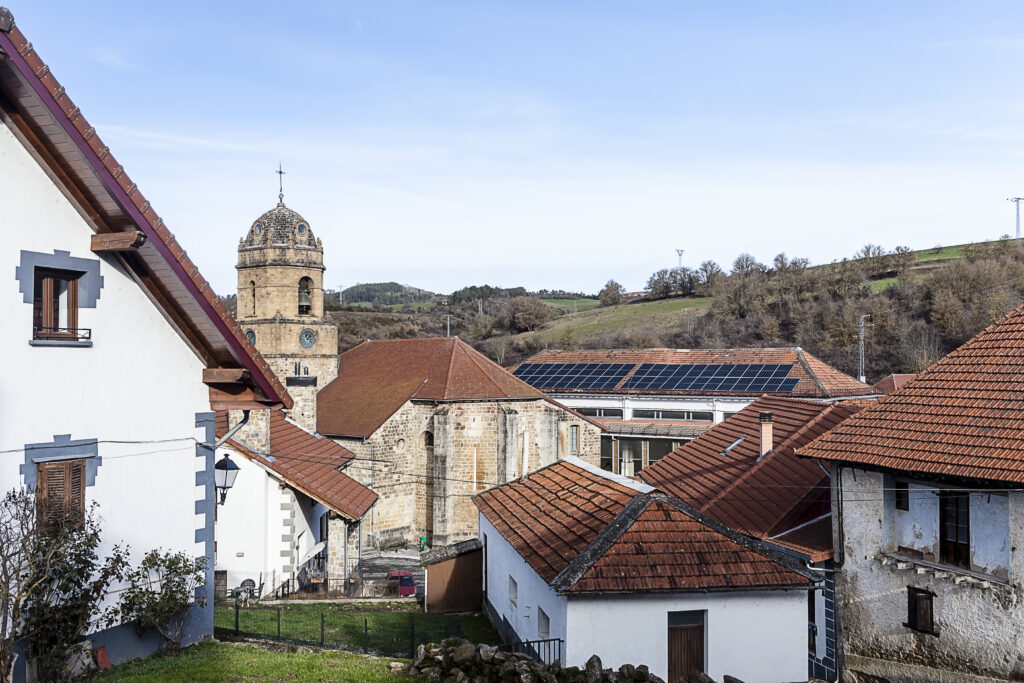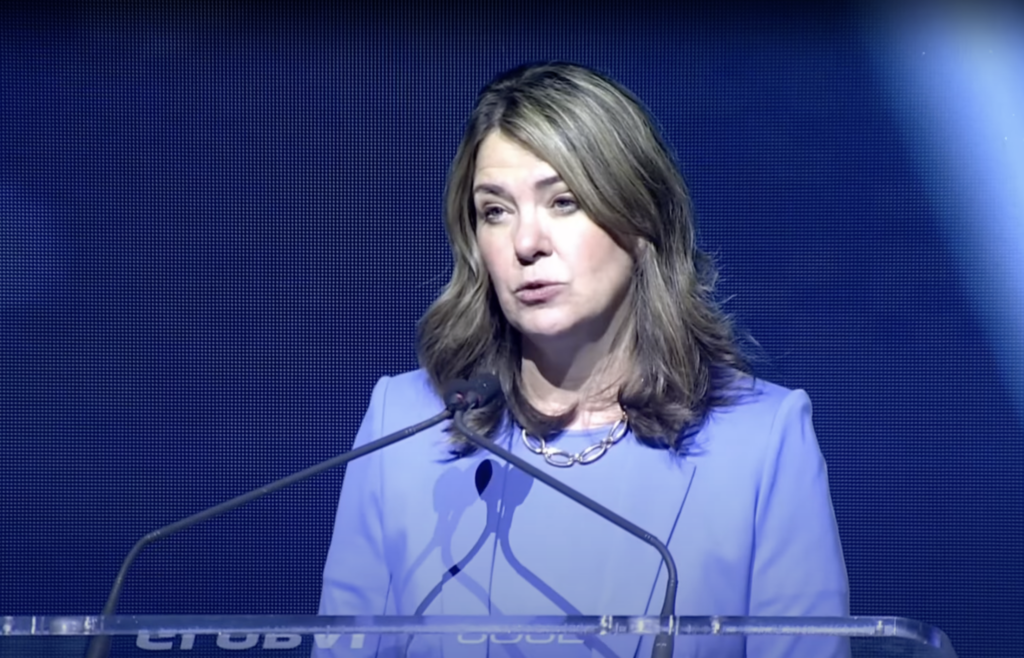As the climate crisis intensifies, more employees of polluting industries, and the consultancies, media, advertising and financial firms that serve them, are waking up to a dilemma: Stay, and feel complicit in the death and destruction; or go, and risk losing status, income, and a sense of security.
As a UK-based climate psychologist, Steffi Bednarek works with multi-national companies, global financial institutions and governments to help leaders and their teams overcome the internal obstacles preventing their organisations from taking meaningful climate action.
Her work has given her insights into the inner conflict experienced by growing numbers of people who realise their employers may be part of the problem — but fear they won’t find equivalent roles elsewhere.
In an interview with DeSmog’s global investigations editor Matthew Green, Bednarek explored the role of “disavowal” as a form of soft climate denial; why so many climate-concerned workers struggle to speak up; and the importance of providing support for those working to reform companies from within.
“There are sectors that are closely connected to the fossil fuel industry, where I definitely see that staff are starting to feel increasingly uncomfortable about their roles, and what they’re contributing to,” Bednarek said. “If we avoid the tension, then we have to become blind to something: the way in which we are participating in the system. My work is about shining a light on that tension, and bringing greater awareness to the incongruence that to a greater or lesser extent we’re all living.”
New Options
Bednarek argued that the Internal Family Systems approach to therapy, developed by American therapist Richard Schwartz, provides a valuable framework for both understanding paralysis in the face of climate change — and charting new pathways to act, at the individual, organisational and societal level.
Working at the intersection between climate, systems theory and the psyche, Bednarek says her move from trauma therapy into climate psychology over the past decade was a deeply personal response to the sense of grief she felt as a mother in a time of global danger and biodiversity loss.
She is an Associate of the Climate Psychology Alliance, Firekeeper at the World Ethics Forum, and Associate of the American Psychological Association’s Climate Change Group. She co-founded the journal Explorations into Climate Psychology.
Bednarek’s book Climate, Psychology and Change will be published this year, and has been endorsed by Fritjof Capra, Bill McKibben, Satish Kumar, Nora Bateson and others.
This interview was conducted on November 24, 2023 and has been edited — and supplemented with additional comments provided during subsequent correspondence — for clarity. A video version of the original conversation is available at Resonant World, Green’s newsletter exploring how an understanding of collective and inter-generational trauma can support more effective responses to the climate crisis.
Matthew Green
We’ve obviously known about climate change for decades. We’re feeling the impacts, we’re seeing the disasters unfolding, and yet we haven’t prepared ourselves internally for what has already happened. Why is that?
Steffi Bednarek
Psychologically speaking we have a term called “disavowal” — which describes a mental state where I can be in two places at the same time. I can know about climate change, and at the same time “not know” — without these two conflicting states cancelling each other out.
So that means that it’s perfectly possible to be deeply concerned about climate change, and our children’s future — and then somewhere on the way from home to work, leave those worries behind.
And I think this fragmentation that we experience as individuals — and which is also encouraged by society — is starting to break down. So we have people who feel really troubled by working in certain industries, because they know that what they’re doing in their day job does not correspond to their deeply held values.
GREEN
Not everybody has the option to step off their career track. How do people cope with the tension of working for a heavily polluting industry, or its enablers, for example, while also caring about the climate?
BEDNAREK
It depends on the industry, but in some sectors it’s still perfectly possible to just park your concerns about climate change outside the building and say: “There’s nothing our company can do.” Or there can be an attitude of: “Yes, we’ve made some adjustments.” But the adjustments are just a box-ticking exercise to enable the system to continue.
There are sectors that are closely connected to the fossil fuel industry, where I definitely see that staff are starting to feel increasingly uncomfortable about their roles, and what they’re contributing to. And at the same time, there are people who may have waited their whole life for a career opportunity: Not everybody has the choice to step off that ladder. So it’s about how we hold this conflict — and stay with it — wherever that tension will lead.
If we avoid the tension, then we have to become blind to something: the way in which we are participating in the system. It’s not possible to be part of a dysfunctional system without also in some way adapting to it — even though that causes us to suffer. So my work is about shining a light on that tension, and bringing greater awareness to the incongruence that to a greater or lesser extent we’re all living.
GREEN
When we know we’re participating in a destructive system, we have to shut part of ourselves down. But if we want to be healthy, we have to retrieve that part that we’ve had to let go of. But as you say, if we feel like the only way we can do that is by leaving — and leaving is not an option, or we don’t feel like it’s an option — then where do we go?
BEDNAREK
We can go from a huge mess to a lesser mess, but we’re all in quite a messy situation now.
I have worked with individuals who’ve had enough support to really make a big change within an organisation — where it had looked like the odds were against them. This is not the heroic story of the individual saviour. But we can sometimes see certain cracks and openings where change is possible. And sometimes it’s quite surprising what happens when we put our foot in one of those cracks and stay with it.
And of course, we can’t do this on our own, we need the right kind of support in order to bear the awkwardness — and at times downright hostility — that people face, when they call something out that doesn’t make sense.
I think we need to start having these kinds of conversations, and think about what it means to be human at this time, and not just what it means to serve in a corporate role.
GREEN
I’m thinking now about a conversation I had a few months ago with Sophie Cowen, who was one of the Extinction Rebellion activists who broke the windows at Barclays Bank. For most people in companies that I’ve worked for, contemplating something like that would make them feel extremely uncomfortable. Is there a middle way?
BEDNAREK
For me it’s not an “either-or”. There’s a diversity of approaches: The whole ecology needs to change. Every day we participate in a death-bringing ecology. We each have a lot of choices about our level of daily participation in this. That doesn’t mean that we all have to smash the windows of a bank, but we all have choices in every little situation that we’re in.
I’m thinking about sitting in meetings at work: What’s our comfort zone in stepping into an awkward conversation? Or speaking up when decisions are taken where everybody knows the impact on communities, on people, or other-than-human beings, or on the climate? It takes enormous courage to raise one’s voice and to say: “Hang on a moment, what are the consequences of this decision?” Or to say “no” to something, not because it’s not economically profitable, but because it feels morally wrong. This really scares a lot of people, and we each have to find the boundary of our comfort zone.
And some people actually really need to find a way out, when the moral injury caused by staying within the system, and not speaking up, feels so unbearable that they actually need to put themselves — you could maybe argue — on the right side of history. Because we all have to justify what we did in this decade to the next generation, the decade when we can actually still change something.
GREEN
And when it comes to challenging authority at work, and risking isolation or rejection by colleagues, we may be touching into layers of inter-generational trauma. We may have inherited trauma from ancestors who were forced into exile — which could be reactivated by feelings of being forced to leave our job. And our cells may still hold memories of a time when being accepted by our tribe was a matter of life and death.
BEDNAREK
Our nervous system is completely wired for community, and there’s this natural sense of shame that comes up when we betray the rules of the community. We’re wired with a deep urge to belong.
But what happens if we belong to a system that’s become dysfunctional — not due to any one particular person’s or group’s doing — but because the whole system has acquired a self-replicating quality that has become toxic?
The part that knows that something is wrong gets split off and pushed down into the unconscious. But really that part that we send into exile in this way is the healthy part. The same process has happened on a collective scale — millions of people suppressing their fear, anger and confusion over the climate crisis because society demands it. So we need to turn our attention to the parts of ourselves that we’ve had to send into exile to belong to this toxic normality. Until we do this, we will continue to live in a state of disavowal or denial.
GREEN
We’ve moved into the language of the Internal Family Systems (IFS) approach to psychotherapy [developed by American therapist Richard Schwartz]. Maybe you could explain why you think IFS can help us respond to the climate crisis?
BEDNAREK
Internal Family Systems is based on the fact that we don’t have a uniform, single perspective on anything. What we think of as “me” is in fact comprised of many parts. For example, if I have a craving for chocolate, there’s the part of me that really wants to eat the chocolate. And there’s another part of me that says: “Hang on a moment, what are the consequences of doing that? Should you be eating chocolate now?”
And there may be other parts that have more opinions, and so there’s a whole series of dialogues going on inside. And depending on the situation, one part will win — and then maybe the other parts will start to complain.It’s like there’s a whole family of parts struggling for control inside each one of us — which is why the model is called Internal Family Systems.
GREEN
Having this model is a relief: If I have all these warring parts, no wonder I’m so dysfunctional a lot of the time!
BEDNAREK
Within this system, IFS has identified that there’s some core parts that we all share.
There are the Protective parts, often called “Managers” — their priority is to make sure we keep functioning securely in our day-to-day lives. These are the parts that adapt to the family system we grow up in, and the wider cultural context. Manager parts often sound like the voice of authority. They say things like: “What do you mean, leave your job?! How could you even contemplate doing that?!”
Manager parts know how to read the room and play it safe.
In IFS, we call the parts of ourselves that we’ve had to suppress to fit in “Exiles.” We have literally sent these parts of ourselves into exile.
In what we call modern society, this process has happened on a collective scale: We’ve had to suppress many of the natural impulses that are essential for maintaining a healthy nervous system — such as connecting with each other deeply; speaking authentically; and getting enough rest and downtime. We’ve had to turn these healthy parts of ourselves into Exiles, in order to fit into society’s norms.
But these Exiles don’t just disappear: You can’t get rid of them; they’ve just been pushed to the margins. We experience this when somebody says something that triggers us: The anger, or fear or sadness that we’ve sent into exile comes flooding back, and we may feel completely overwhelmed. And then the Manager parts come in and say: “You’re not supposed to get upset in a team meeting! These feeling have no place here!”
People experiencing this conflict often come to therapy and say: “I get too emotional.” What they are really saying is that they want the therapist to help them get rid of the Exiles, to push them back to the margin. But maybe at this time that we’re in, those Exiled parts are the last frayed lifeline we’ve got to a healthy nervous system.
And then “Firefighters” say things like: “This conflict is making me feel uncomfortable — let’s have a drink instead.” They can use all kinds of addictions — including things like TV, overwork, shopping or other forms of avoidance — to provide temporary relief. But that comes at a cost, because it just keeps the whole conflict going for longer.
And so when it comes to climate change, the Managers ask us to play it safe, to just wait a little, to keep quiet and not make things awkward, just keep it nice and safe.
Internally, our Exiles may be screaming out in fear or anger over some incongruence, but our Firefighters come in and say: “Just go to the kitchen and have another glass of wine.” That happens at the individual level, in organisations, and at the national level. Big pockets of society act this process out.
GREEN
So what can we do to resolve these conflicts?
BEDNAREK
The important thing to remember is that we also all have a more fundamental part, which in Internal Family Systems we call the “Self”. This is the part that can stand back and observe our thoughts and feelings — and which is recognised as a core part of our being in every major religion and wisdom tradition. The Self is able to listen to all the other parts and take their views into account, a bit like the chair of a board meeting canvassing opinion to find the best solution.
We all have access to the Self — it’s universally human. Even people who have experienced extreme trauma still have this part, it doesn’t go away for as long as we live. It’s a bit like a cloudy day: We know the sun is still there, even though we sometimes wonder where it’s gone.
The beauty of IFS is that it reminds us how to act from a position of Self leadership, which can bring awareness to the inner conflict between our Managers, Exiles and Firefighters. So instead of acting these conflicts out, we can use the Self to bring our parts into harmony.
The Self can support us to respond to the climate crisis in healthier ways. It can help us to find the courage to challenge situations that are not aligned with our values. And it can guide us to communities that can support us to consciously step out of toxic environments.
GREEN
How do we help more people to overcome these inner conflicts? Do we need new institutions? Or perhaps new practices within organisations? What does our “psychic sanitation” system look like in the decades to come?
BEDNAREK
It’s clear that organisations can no longer be solely focused on the economic success of their business. However, the imperative to serve business interests and collective and ecological well-being is not free of tensions, paradoxes and conflicts of interest. The economic system makes no provision for future generations, and other-than-human life.
Many problems are still externalised — meaning management thinks somebody else should take responsibility for impacts their company is causing. Many challenges are only selectively addressed, or when solutions are put forward, they can be instrumentalised to serve other agendas. Often there is no bad intention at work: It’s just that familiar ways of defining what a problem is shape responses in the old, fragmented ways.
For me the most important work happens in the spaces where we come together, broaden our mindsets, and explore new narratives about what’s possible.
When I work with an organisation, I don’t parachute in a solution that isn’t already there. I pay attention to what people may already be doing on the margins. I create a container that makes it safe for people to say: “I’m also a musician, and in music we riff in a very different way to how we hold our team meetings here, can I tell you about that?” We just need life to come back into the imaginative places that we habitually deaden.
We really need to create spaces where there is no right and wrong, where we relate and listen with much greater depth and awareness. And when we do that, something shifts. And we can’t predict what it is, but something shifts and Life comes through. As far as I am concerned, that is the level of depth we need to go to in order to shift to a healthier ecosystem.
The headline on this story has been updated since it was first published on February 5, 2024.
For more coverage of the intersection between trauma, the climate crisis, and new pathways to healing, please visit Resonant World.
Subscribe to our newsletter
Stay up to date with DeSmog news and alerts







